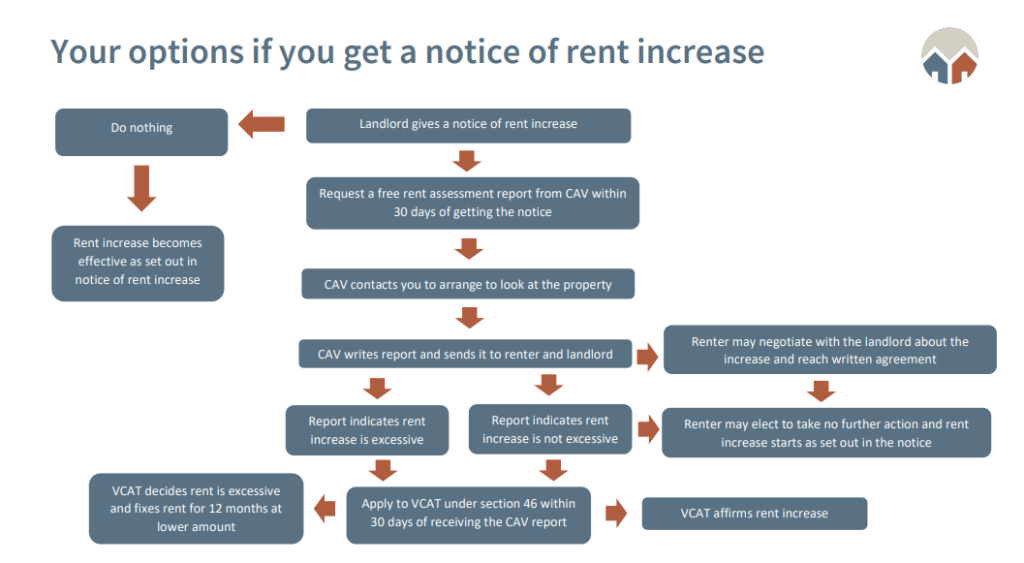Challenging suspected invalid rent increases
EVENT SUMMARY
Community lawyers are urging renters to challenge rent increases they feel are excessive or invalid.
Rental providers are only allowed to raise rents once a year and don’t face any hard rules limiting how big an increase can be.
But Tenants Victoria lead lawyer Ben Cording says there’s an obligation on landlords to document and communicate any proposed rent rise correctly, or it could be deemed invalid.
“They need to give you at least 60 days clear notice before the increases to take effect,” Mr Cording told a recent VCOSS Renters’ Rights forum.
“If they only gave you 58, that won’t be valid. If they gave you 59, it won’t be valid.”
Landlords must also use the correct form, specify the “method of increase”, send the notice in a valid way and give clear and correct advice on how a renter can challenge the proposed increase.
Failure to meet any of these requirements, as spelled out in Victoria’s Residential Tenancies Act, will make the proposed rent increase invalid.
“Many years ago I had a client who had paid very low rent, and each year got a little letter in the mail saying ‘Your rent’s going up a hundred bucks’.”
“Then we realized that there was no proper advice about being able to challenge [the increase] and it wasn’t in the right form, so it was invalid.” Mr Cording said.
The notice of proposed rent increase must be given to you on the official form, either in person (between 8am and 6pm), sent in the mail (in a timely manner) or via email, but only if you’ve given written permission that this is okay.
The requirement for landlords to detail the “method of increase” – essentially how they calculate and justify the proposed rent hike – is one of more than 130 changes to rental regulations made recently by the Victorian Government.
Mr Cording told the forum while there’s no hard formula dictating what constitutes a “fair” rent increase in Victoria (VCOSS is pushing for exactly this), landlords are required to explain and justify their calculations in some detail.
This should include references to similar rentals in the area (not social housing), the condition of the premises, any changes to the property and the value of the dwelling, among other things.
Mr Cording said vague or unsupported references to market forces won’t cut it.
“You can’t just plunk a figure … and use the phrase ‘comparative market research’ to check the box. Not good enough.”

If renters are unsuccessful in rejecting or negotiating a reduced rent increase through direct conversation with their landlord or real estate agent, they can take the matter to VCAT for a formal determination.
Mr Cording acknowledged it was unfair individual tenants were responsible for identifying and challenging suspected invalid rent increase notices, but said help was available through Tenants Victoria or one of Victoria’s more than 50 community legal centres.
The VCOSS Renters’ Rights Forum covered a host of issues specific to rental increases and how social sector workers can support clients to navigate rising rents.
A full transcript of the event and copies of Ben Cording’s presentation is available here.
VCOSS is the peak body for Victoria’s social and community sector, and the state’s premier social advocacy body.
We work towards a Victoria free from poverty and disadvantage, where every person and community experiences genuine wellbeing. Read more.

VCOSS acknowledges the Traditional Owners of Country. We pay respect to Elders past and present, and to emerging leaders. Our business is conducted our business on sovereign, unceded Aboriginal land.